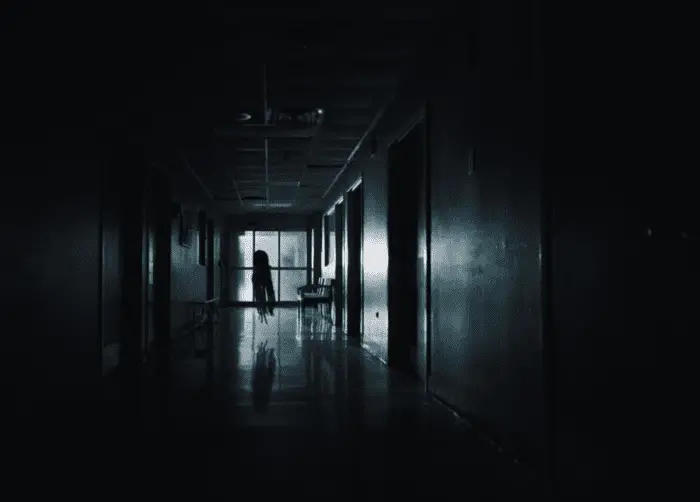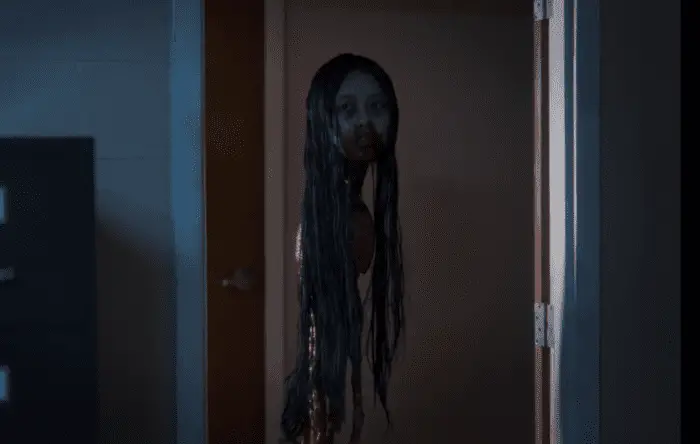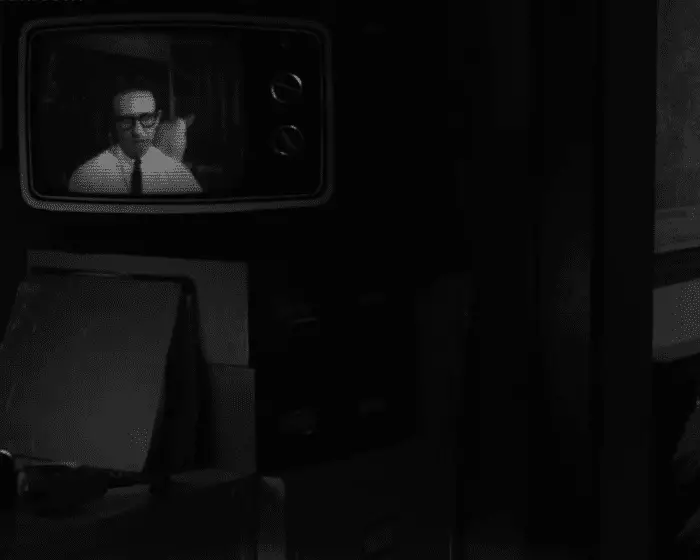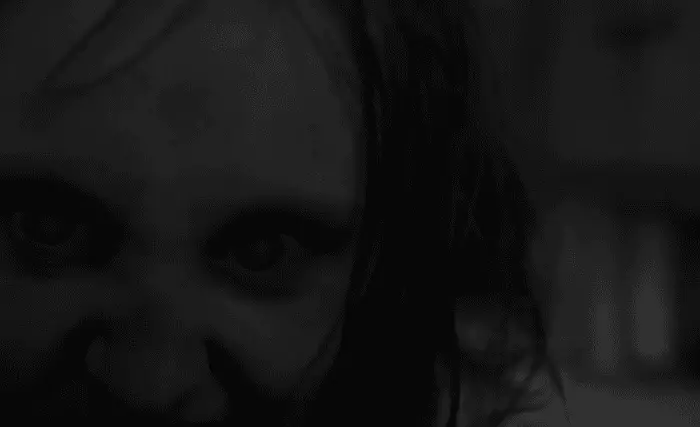Creepshow Season 3 brought out some heavy hitters in Episode 6. “Drug Traffic” and “A Dead Girl Named Sue” bring some lessons about one’s truth coming out despite efforts to conceal it. A politician says whatever he thinks will get him elected, and a border guard follows procedures. Chaos ensues as a girl’s mother tries to protect her and medicate a disturbing ailment. In “A Dead Girl Named Sue,” a spoiled and sadistic brat can’t be protected from everything by his well-connected father.

In “Drug Traffic,” we meet a Congressman (Reid Scott) who is parading a group of US citizens on a bus trip to illustrate the problems in the healthcare system and is pointing out the lack of access to medications. The journey is less about helping them and more about putting on a show for votes. We meet a border security officer Beau (Michael Rooker), who stops a mother (Mai Delape) carrying a large amount of what appears to be diet drugs or amphetamines. Her daughter Mai (Sarah Jon) is clearly not well. Her eyes appear sunken; she is sweating, and she vomits up some medications. The mother explains that her daughter needs the medications, and we wonder if Mai is having some sort of drug withdrawal.
She needs her medication….

While addiction and withdrawal are horrible real-life situations, Mai’s truth is even worse. She is an actual monster. Mattie Do devised this story and used Asian folklore to create a monster that is absolutely terrifying and unfamiliar to Western viewers. This creature from folklore is typically a female head, with long black hair. The head detaches from her body, then flies through the air, with entrails hanging below, to devour unsuspecting people to satiate an unnatural hunger.
This creature has several names, but one is the Penanggalan. It glides through the air with its entrails hanging from its head. Another area calls it the Krasue, and it has a similar appearance. The scenes with the flying head were unsettling, for sure. In the end, the mother will do anything to protect her daughter, and the politician admits that he just wants votes and really doesn’t intend to change anything.
We face the monsters of uncertainty about healthcare in our real-life situations. The pandemic has brought about real fears. There are many people who are in dire need of life-sustaining medications and healthcare that are unable to receive them. This story plays upon true-to-life fears about our own health and cynicism about how little the people we elect really care about us.
Return of the Living Sue
“A Dead Girl Named Sue” is in black and white, except for one element that is very important to the plot. We learn that the setting is 1968, and we see a lynch mob assembled outside a small jail. We hear snippets of conversation about mass homicide, and we realize that this story is unfolding on the actual night of the living dead. Nevertheless, the mob’s anger and desire for revenge take priority over the dangers of zombie hoards.

There is discussion of whether law still matters when society seems to be breaking down. Police Chief Foster (Christian Gonzalez) is intent on preserving law and order, and he tells the mob to disperse. They are after Cliven Ridgeway (Josh Mikel), the mayor’s son, who has wronged many of them in horrible ways and has hidden behind his father’s political power. He has not been brought to justice for any of his deeds. We see a grieving father who insists that Cliven did something to his daughter. Despite obvious crimes being committed, Cliven is never prosecuted because his father owns the town. The police chief won’t condone a lynching and tries to do his job and protect Cliven from the mob…until he sees something that changes his mind about justice.
Things have a way of coming back
Throughout the story, we hear and see snippets of news broadcasts from Night of the Living Dead about human corpses being eaten and reanimated. Although society might be degrading and the order of law doesn’t seem as important, the police chief doesn’t allow the mob of hurt and angry townspeople to get their hands on Cliven. However, he does deviate from legal procedure and facilitates Cliven being brought to a different sort of justice.
A zombie crisis would be a time many would be tempted to settle old scores without fear of retribution. People would be looking forward to building a society according to their own ideas.

A theme that runs through both the tales in Episode 6 is the truth coming out eventually. There is the suppressed truth about the girl’s true condition in “Drug Traffic,” that Mai tries to suppress with appetite suppressants. The politician’s true feelings about the issues and his constituents are hidden but come out in the end. In “A Dead Girl Named Sue,” we see Cliven, who is so confident and cocky about not having to answer for his unspeakable crimes come face-to-face with one of his dastardly deeds.
How would any of us respond if actual monsters were attacking us?
If actual monsters were attacking us, would we blindly follow the rules? Would we make up our own rules as we went along? What would any of us do if things really hit the fan? Would we be like the police chief trying to follow procedures and preserve society, or would we be practical and solve problems in innovative ways and potentially resort to violence? Would we use the crisis to exact revenge on our own monsters?
Every time I have changed jobs in my professional life, I have written a zombie policy to lampoon all of the red tape and policies in-office procedures and left it in a policy manual. Does anyone even read those anyway? In the case of zombies, would we bother to stop and complete our forms, check all the boxes, and file the forms in triplicate? If there ever is a zombie apocalypse, (or other catastrophic event) will we have a free-for-all, or will we maintain order so we can continue to have a society after the threat passes?
I hope we never have to find the answer in real life.



